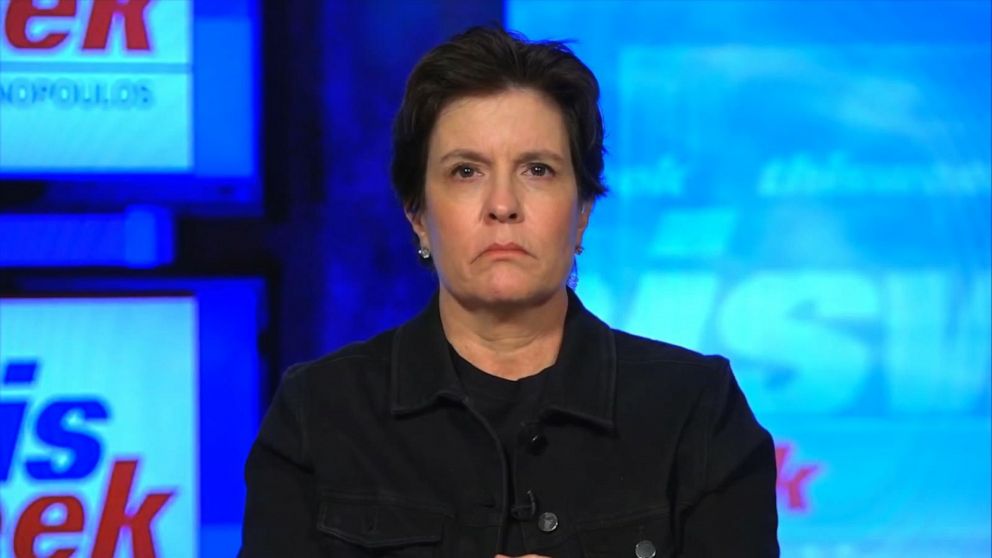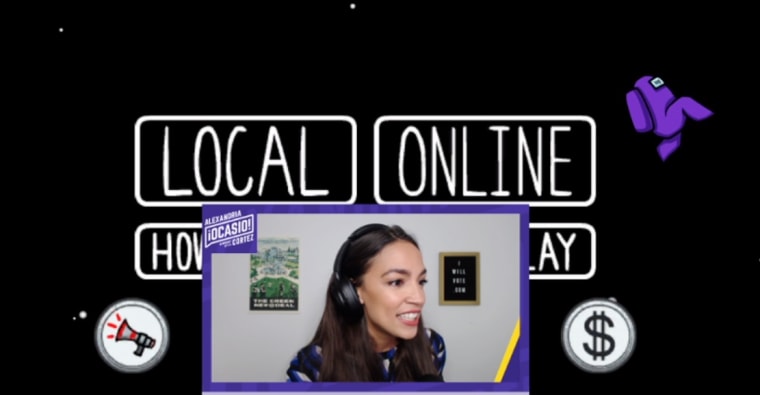Ocasio Supreme Court 2021
On Friday, the U.S. Supreme Court took up two vitally important cases dealing with the freedom of speech and association. Back in 2015, Attorney General Kamala Harris (D-Calif.) demanded that two conservative nonprofit organizations, Americans for Prosperity (AFP) and the Thomas More Law Center (TMLC), hand over their donor lists. This demand threatened to reveal the identity of donors, potentially subjecting them to threats and harassment for supporting these groups. It also flew in the face of a 1958 Supreme Court decision upholding Americans’ right to support causes they believe in without government harassment.
Along with impeachment, some Democrats are threatening to pack the Supreme Court with more justices in 2021 should Trump continue with the nomination process. Alexandria Ocasio-Cortez Supreme Court. At a Brooklyn event earlier in the month, an audience member asked Ocasio-Cortez: “I have a short question. If in a few months from now the Supreme Court looks like—I’m pretty scared it’s going to, a court that would overturn Roe and make the president above the rule of law. The US Supreme Court on Monday dismissed lawsuits that accused former President Donald Trump of illegally profiting from his four years in the White House as “moot” because Trump has left office. New York congresswoman Alexandria Ocasio-Cortez has emerged as one of the high-profile faces of the Democratic response to Republicans’ plan to quickly seat a new, conservative supreme court.
“It is beyond debate that the freedom to engage in association for the advancement of beliefs and ideas is an inseparable aspect of the ‘liberty’ assured by the Due Process Clause of the Fourteenth Amendment,” The Supreme Court wrote in the landmark case NAACP v. Alabama (1958). The State of Alabama had ordered the NAACP to hand over a list of its members during the era of segregation when the Ku Klux Klan held tremendous power in the state. The Supreme Court defended the NAACP from this government harassment.
Richard Thompson, chief counsel and president of TMLC, argued that the Supreme Court should defend his organization from California’s assault on free speech, just as it did for the NAACP.
TMLC advocates for conservative issues in the culture wars, and the far-left smear factory the Southern Poverty Law Center (SPLC) has accused it of being a “hate group,” so the organization receives a good deal of hate mail and other attacks. Thompson said his employees know they will face this kind of harassment, but TMLC’s donors should not.
“Our society is a very caustic environment right now. If people want to ‘cancel’ other people out, it’s no longer a debate about issues. Today, it means that if you beat the other side, that’s not enough, you want to destroy that person, too,” Thompson told PJ Media in an interview on Tuesday.
“We don’t want people donating to us having to take that flak, that kind of adverse effect, either losing their job or being threatened at home, their businesses being threatened. Those kinds of things have happened to people who take a stand,” the TMLC president said.
The All-Out Assault on Conservative Thought Has Just Begun
People should be able to give money to causes they believe in “without being afraid that their future ability to earn an income is going to be destroyed.”
As a 501(c)3 nonprofit, TLMC has to give the IRS a list of the names and addresses of its major donors, a Schedule B form. That list is confidential and the public does not have a right to look at it. Yet California law requires any nonprofit that raises money in the state to hand over the Schedule B form to the California attorney general’s office. TMLC and AFP have long refused.

In 2015, Kamala Harris demanded the donor list within 30 days, threatening to revoke TMLC’s right to solicit donations in the state and threatening hefty fines for the years in which TMLC did not turn over its Schedule B form.
Ocasio Supreme Court 2016
TMLC sued Harris in California state court, applying NAACP v. Alabama.
“We had all these investigators testify that (1) there has never been a California legal complaint made against the Thomas More Law Center, (2) the Thomas More Law Center is not being investigated and that (3) California investigators did not use the schedule B for their investigations,” Thompson explained. He noted that California performed 540 investigations in the last several years, and only about five times did any investigation involve the Schedule B form. Even so, California collects roughly 60,000 of the forms every year.
No fewer than six assistant attorneys general worked on the case against TMLC. “Why are six attorney generals trying to get a small organization like the Thomas More Law Center prosecuted when you have no indication that they’ve ever committed a crime?” the president asked, pointedly.
While the California district court ruled in TMLC’s favor, a 3-judge panel of the 9th Circuit Court of Appeals ruled against the organization, and an en banc hearing upheld the panel’s decision. The 9th Circuit applied an “exacting scrutiny” standard in allowing California to demand the donor list, while TMLC argued that the court should use a “strict scrutiny” standard for fundamental First Amendment rights like free speech and freedom of association. Under “strict scrutiny,” the government must prove that its policy advances a compelling interest and uses the least restrictive means to do so.

Thompson argued that California fails on both grounds.
Kim Strassel: The Left’s War on Free Speech ‘Goes Beyond Bullying’
The state “didn’t need our schedule B,” he argued, citing court testimony that investigators could obtain the same information from other sources. Furthermore, California was not using the “least restrictive means” to obtain such information.
TMLC deals with hot-button issues like same-sex marriage, abortion, radical Islam, and immigration. The SPLC has branded the organization a “hate group,” placing it on a list with the Ku Klux Klan. Furthermore, the California attorney general’s office has failed to secure lists of donors. The office once disclosed the confidential information of hundreds of Planned Parenthood donors.
“Requiring hundreds of charities to disclose donors’ names and addresses annually to a Registry with a proven history of leaking confidential information will have a devastating impact on support,” the petition to the Supreme Court read. “In contrast, the Attorney General does not need donors’ confidential information, hardly ever uses it, and can readily obtain that data via an audit or subpoena on a reasonable suspicion of fraud.”
Thompson explained that TMLC defends the confidentiality of its donors. “We do not sell their names or rent their names out. We assure them that when they donate to us, it’s private,” he told PJ Media.
When Kamala Harris demanded AFP’s donor list, AFP staffers and donors testified about the threats and intimidation they had received before any forced disclosure.
“Our chief operating officer, my boss, Chris Fink, … testified about the threats to him and his family members. They’re just horrible, and I’ll just relate one typical thing that we showed in that courtroom,” Victor Benson, vice president and general counsel at AFP explained back in 2016. “It was a video game produced by the Left, and the concept of the game is an active shooter goes into AFP headquarters, and you get points for killing AFP personnel.”

Ocasio Cortez Supreme Court
According to Bernson, Harris wanted the information on AFP donors “to directly harass and intimidate our donors, maybe bring audits against them, maybe deny them permits that they’re seeking — but it goes beyond that. She was also going to leak this stuff to her pals … because they were going to get out their boycotting forces, and show up at people’s businesses, and blockade their doors, and go into people’s homes, destroy their property, and protest all day long, and just make their personal lives miserable.”
While this may sound like a conspiracy theory, the attorney general of Michigan, Dana Nessel, singled out SPLC-accused “hate groups” for government surveillance in announcing a new “hate crimes unit.” TMLC has filed a Freedom of Information Act lawsuit to probe just how closely the SPLC worked with Nessel to launch this attack.
Kamala Harris left the attorney general’s office in 2017 to join the U.S. Senate, but her successor, Xavier Becerra, continued to demand donor lists from TMLC and AFP. The Supreme Court will hearThomas More Law Center v. Becerra and Americans for Prosperity v. Becerra in one consolidated case.
Aoc Supreme Court
Tyler O’Neil is the author of Making Hate Pay: The Corruption of the Southern Poverty Law Center. Follow him on Twitter at @Tyler2ONeil.